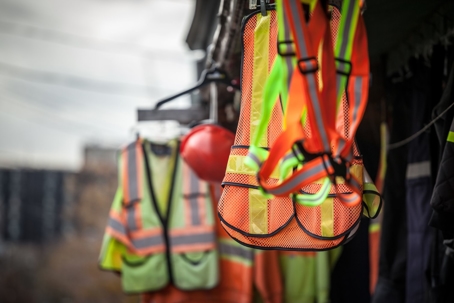An industry run on hands, the construction business faces challenges during the COVID-19 outbreak. Think about it—each new build, every renovation project, requires groups of people, working together, performing hands-on tasks. While the full severity of COVID-19 is still unknown, the pandemic is sure to have ramifying effects on construction regardless of the “essential” status this market holds.
Here are the current consequences:
Trade Show Cancellations
As mass gatherings are strictly discouraged, things are coming to a halt. Trade shows alike are being canceled, including the largest construction trade show in North America, CONEXPO-CON/AGG. This is having a widespread effect on companies as the chance for brand exposure, new professional relationships, and competitor analysis becomes impeded.
Worker Health And Safety
As per recent news, Los Angeles Mayor Eric Garcetti orders strict COVID-19 exposure control plan compliance for all construction job sites in the greater Los Angeles area, if they wish to remain open. These guidelines outline social distancing protocols, staggered work schedules, sanitation requirements, and require supervisors to ensure these precautions are implemented throughout the site.
All shared tools and equipment must be disinfected before and after an individual use. Employees must also wear masks while working and regularly sanitize hands throughout the day. Although these health guidelines are enforced to prevent the spread of the virus, they are not ironclad. Additionally, these practices pose potential workflow issues. Frequent disinfecting acts along with social distancing make working as a team quite difficult and have proven interruptive.
Construction markets in Boston, Chicago, and Washington State have limited the umbrella of “essential construction”, reducing projects to emergency maintenance and healthcare construction. New York has only allowed construction to continue on roads, bridges, transit facilities, hospitals and healthcare buildings, affordable housing, and homeless shelters. What are the next steps for Los Angeles?
For now, the industry remains open; however, Mayor Garcetti has publicly announced that there will be routine inspections of job sites to ensure city-wide protocols are in practice and enforced.
Material Shortage
The construction industry heavily relies on imported building materials, specifically from China. As the Chinese government shut down most factories to try and contain the outbreak, the supply chain has been interrupted. This has lead to scarcity of materials, slower shipment rates, and an increase in product costs.
Even before the coronavirus spread, construction materials were steadily increasing in price. This trend is likely to continue post-pandemic as well.
Legal Ramifications
As materials become harder to come by, and construction workers stagger schedules, projects will inherently experience a lag. Although this pandemic was unpredictable, contractual obligations may still apply. Delays and spikes in the bottom line may fall subject to the contractor.
Sick Leave And Paid Time Off
Many construction workers are not full-time employees, making worker protections typically minimal. The Families First Coronavirus Response Act, which was signed into enactment on March 18th, requires employers of companies with fewer than 500 employees to provide 80 hours of sick leave to full-time employees. However, most construction workers are not full-time, and if they don’t work, they don’t get paid. This becomes problematic as those that are sick may feel the need to continue attending work, compromising the entire job site, in order to provide for themselves and their families.
We are currently taking all necessary precautions in order to ensure the health and safety of our clients and technicians. For more information on our response to COVID-19, click here. Please do not hesitate to contact Calgrove Equipment Rentals at (818) 805-1617 today. We are open and here for your construction equipment rental needs. We have a diverse fleet of dependable, high-performance heavy equipment for commercial and residential projects.

